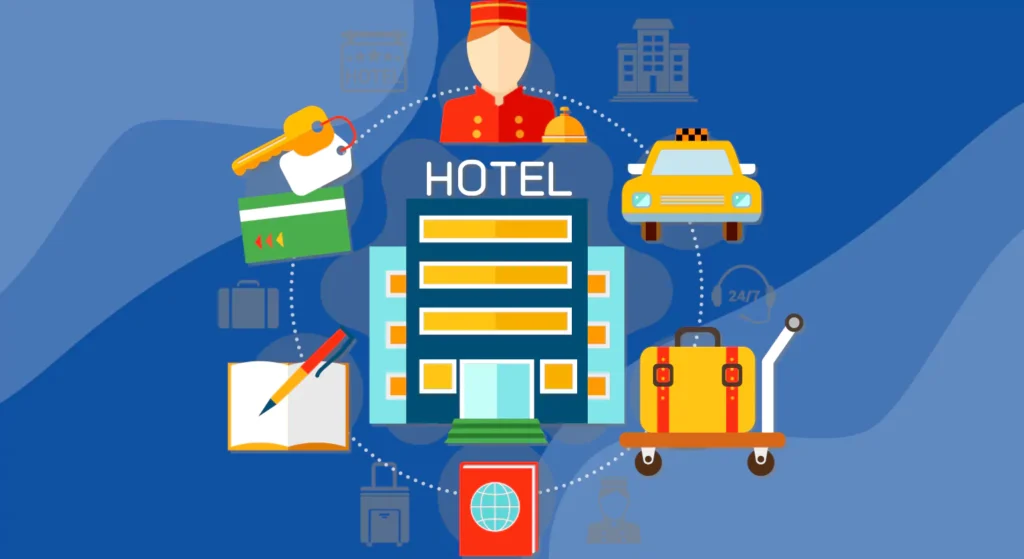The hospitality industry, comprising primarily of resorts, needs to understand how to leverage Search Engine Optimization as a means of staying active and competing in the modern digital world. As the trend continues where more and more travelers rely on search engines like Google to find a great vacation spot, it is imperative to maintain an efficient online presence. If you are an owner or manager of a resort, looking to capitalize on the rise in website traffic to your destination, and enhance your efforts in online marketing, the knowledge to make it all work will come in the form of SEO. This is the ultimate guide that covers the basics of SEO for resorts, beginning with what it can help you with, right down to more actionable tips on how to get started.
Table of Contents
ToggleWhat is SEO for Resorts?

Search engine optimization, or SEO, consists of optimizing your site to make it more visible in the SERPs of your respective search engine.At the resort level, SEO refers to the use of tactics and approaches that work well to position your website more favourably at top rankings for relevant terms. The chances of increasing organic traffic to your resort are likely to increase with the appearance near the top of these lists, grow leads into bookings-and ultimately, revenues. SEO for resorts encompasses numerous practices, such as keyword research, on-page optimization, technical SEO, content marketing, and link building.
3 Benefits of SEO for Resorts

1. Improved Visibility and Traffic
Main Value: Increased Visibility. A higher place in the search results means more visitors to your resort website. More clicks translate into more booking possibilities, which is crucially important to a travel-based industry that is extremely competitive. The more a higher ranking for targeted keywords goes for your website, the greater number of potential clients will find your resort.
2. Cost-Effective Marketing:
SEO is one of the most cost-effective long-term marketing plays compared to other forms of advertising. You may have to wait months for you to see the results, and after your website begins to rank well, you get sustained organic traffic without adding costs. Paid ads just disappear once your budget runs out.
3. Earned Credibility and Trust
Resort websites attract more credibility from customers, and the concept of such a resort website popping at the top of Google search for keyword searches related to your business can enhance the level of trust among the visitors to be able to come visit. And that is an indirect way of building up good reputation as well as earning confidence in your resort.
Best SEO Practices for Resorts

Now that you know the importance of SEO, here are five actionable tips to make your resort improve rankings and get more customers.
1. Keyword Research: Understand What Travelers Are Searching For
Keyword research is the beginning for efficient SEO. After discovering those terms and phrases for which your potential visitors are searching, you align your content according to their requirements. Therefore, it would be highly beneficial to discover high-traffic keywords related to your resort using tools such as Google Keyword Planner, Ahrefs, and SEMrush.
Target longer-tail keywords, which means more specific phrases, such as “family-friendly beachfront resort in [location],” or “romantic getaway resorts near [city].” These tend to be less competitive, but highly relevant to the people most likely to book at your resort.
2. Optimize On-Page Content
Once you’ve selected your target keywords, work them naturally into your website’s content. Here are some on-page elements that you should focus on:
– Title Tags: This is one of the more important SEO factors. Include a unique title for each page, including relevant keywords. “Luxury Beach Resort in [Destination].”
– Meta Descriptions: This description appears below your page title in search results and should be a short interesting summary of the content on the page with keywords to raise the click-through rate.
– Headings (H1, H2, H3): These headings are sometimes used to structure your content and are a fantastic opportunity for a keyword placement as well. Use them for headlines: “Find the Best Resorts in [Location].”
– Internal Linking: Make internal links to other pages on your site for a holistic better user experience, and for the search engines to understand the structure of your site.
3. Mobile Optimization
The latest studies show that an increasingly larger share of travelers use their smart phones or tablets to search for and book a trip. Indeed, many companies have realized that, in comparison to desktop traffic, it is the relative share of mobile traffic that became larger for them; some travel-related businesses are not an exception to this rule either. Make sure your resort’s website performs well on all devices by making it mobile-friendly.
It is also making use of mobile-first indexing where the mobile version of your site takes precedence in rankings. Your website should be responsive, fast to load, and friendly to mobile users.
4. Use Local SEO for Local Traffic
For resorts, Local SEO is a must because usually, tourists search for specific destinations within geographical locations. To ensure your resort appears locally on search engine results,
– Claim your Google My Business listing: This lets you show up in local searches, Google Maps, and the Local Pack-the grouping of local businesses in the search results.
– Add location-based keywords: This uses keywords that are related to where your resort is located-for example “beachfront resort in Malibu” or “mountain resort near [city].”.
– Reviews from locals: Ask visitors to review your property through Google, Yelp, and other reviews. Your presence increases the chances of a good ranking and higher credibility.
5. Develop Interesting and Relevant Content
Content marketing is part of SEO. Quality and informative content not only attracts visitors but also keeps them on your site, minimizing bounce rates and maximizing rankings. You can create travel blogs or invite guests to help you bring as much value as possible into your resort by listing such content as follows:
– Travel blogs: So write about local attractions, activities, and events in the area.
– Guest testimonials: Continue showcasing real stories from your guests who have stayed in your resort.
– Photo galleries and videos: Great images can be very engaging for your visitor, so they keep digging around your site.
Sustained rich, quality content publishing proves your resort as a leading brand within the travel hospitality industry, which ultimately benefits your SEO.
Technical SEO for Resorts: The Backend Basics

While on-page SEO is about the front end – the view you see, technical SEO pertains to the back-end of your website. Several such technical factors that could affect your resort’s SEO are as follows:
– Site Speed: Your website needs to load as fast as possible because slow websites are bad for a user experience and, even worse, for search engine rankings. To check your site’s speed, use tools like Google PageSpeed Insights and get recommendations on how to improve.
– Schema Markup (Structured Data): Schema markup helps a search engine better understand your content. This can serve as a great way to increase your presence in rich snippets and knowledge panels.
– Safe Website (HTTPS): Google favors a safe website. Ensure your resort’s site is using HTTPS instead of HTTP.
– XML sitemap: It helps search engines to index your pages more accurately. Ensure your sitemap is updated and submitted to Google Search Console.
Conclusion: Taking Your Resort’s SEO to the Next Level
SEO is one labor of love that puts sweat and tears; however, rewards definitely compensate for the pain of making it happen. Those who put these strategies into practice receive high rewards. Your resort will rank higher, attract more guests, and build strong and credible content in the online environment by implementing these SEO tips. Be it keyword research, content optimization, or fine-tuning your local SEO, each step gets you closer to dominating the search results and earning more bookings.
Remember, SEO is a long-term strategy. Don’t expect overnight results at first, but make sure you give it enough time to see a large increase in organic traffic and subsequently, reservations. Start applying these tips today, and your resort will rise in the ranks, allowing more travelers to experience what you have to offer.
About Us
At Bloom Digital Marketing Agency, we specialize in helping hotels boost their online presence through tailored SEO strategies. We’re a respected hotel SEO agency; thus, we strive to achieve as much visibility in search results for your property as possible, which makes for more direct bookings.












Rahul M.
B2B Service Provider